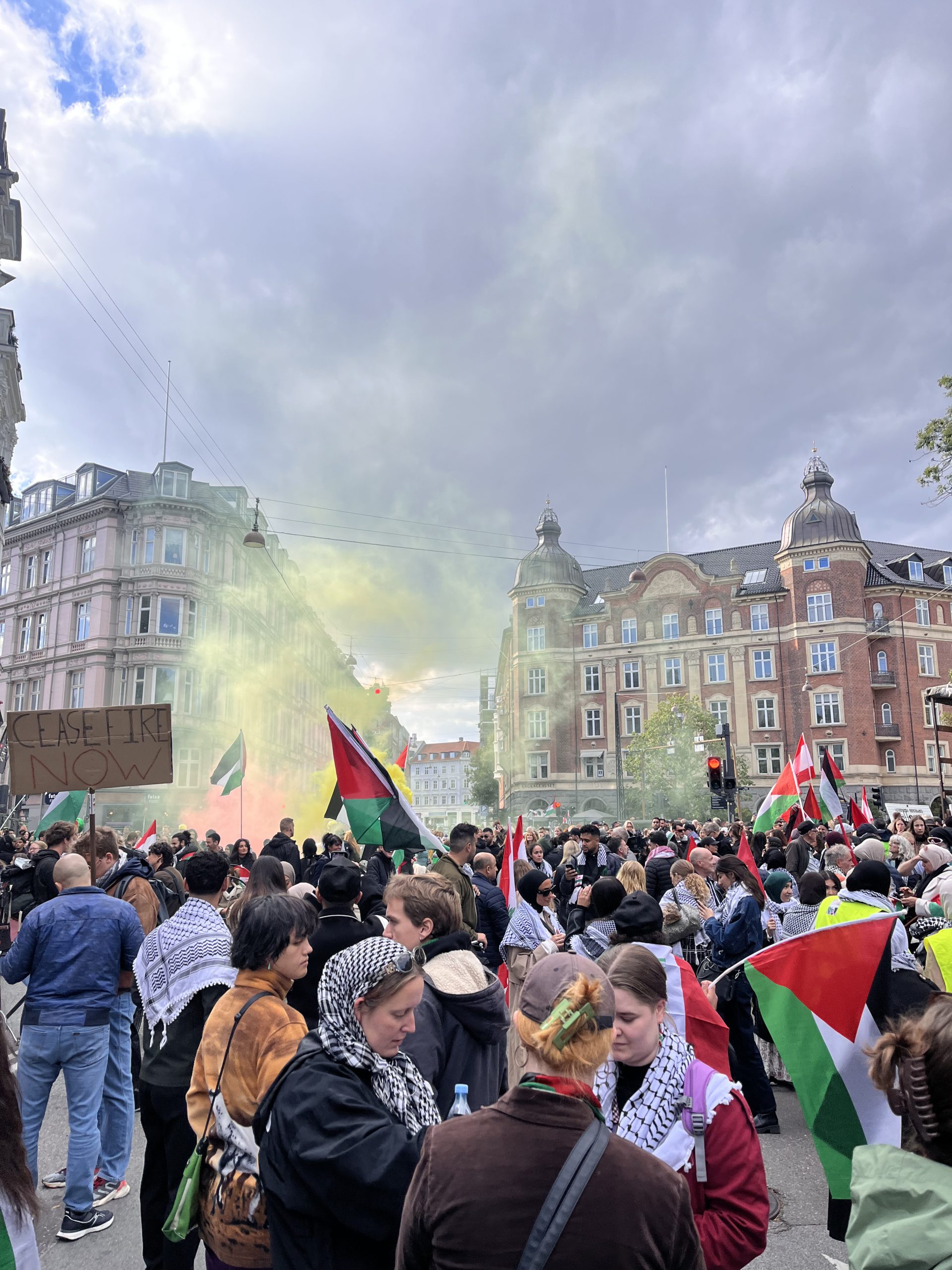Hey I’m Joel – I’ve been living in Copenhagen for the last 5 years working for a Danish tech company, but studying part-time for the MA in ComDev since 2023. I have a keen interest in the relationship between protest, digital activism and grassroots movements. I have previously worked as a languages teacher at a London secondary school and have also taught German to refugees and migrants at the Berlin-based organisation KuB (Kontakt- und Beratungsstelle für Flüchtlinge und Migrant_innen), a community led, grassroots organisation, which advises refugees on asylum and residency processes and procedures, as well as providing language assistance and teaching in both German and English.
I have also worked on a freelance basis in communications for a UK not-for-profit that works in coalition with the public and private sector organisations to rewire financial markets to invest in green transformation projects.
My fellow bloggers and I all gravitated towards the theme of ‘communicating digital activism’ so, on a personal level, I am excited to share this platform with them in order to explore digital activism with a particular focus on the pro-Palestinian movement in Europe with each of us using our respective cities as a case study to learn how, since October 7th, people have gathered, marched, posted online, gone on strike, objected, taken a stance, shared information, exchanged ideas and come together against oppression, against settler colonialism, against genocide and ethnic cleansing in order to show Western governments, who many in the movement see as complicit in the atrocities that we are now witnessing in Gaza, that we, the people, say enough is enough. Stop. Not in our name.
It’s an opportunity for all of us to learn and engage with the topic at hand through the lens of digital activism, by critically applying theories and discourse to what we are seeing on the ground, and crucially, online.
Digital activism has come a long way from early access software to citizen-led journalism to blogging and, now most potently, the advent of social media platforms which have, arguably, spurred social unrest and galvanised wider social “revolutions” such as the Arab Spring. And now we bear witness to the ongoing genocide in Gaza, largely through our mobile phones. With international journalists working for mainstream media outlets banned by the Israeli authorities from entering Gaza, we gain a piecemeal portrait via short clips on Instagram – unbearable scenes which are largely omitted or glossed over by our media.
During my blogging ‘journey’, I hope to further my own understanding of how this particular conflict seems to have galvanised so much support in the form of digital activism, what this means on the ground in Copenhagen and how protests are using new media in order to gain traction and support, and in order to show what mainstream news outlets seem to lack in their reporting – both of the situation in the Middle East, but also how much momentum opposition to these atrocities have gained. I am also keen to explore how the pro-Palestinian movement intersects with other social movements or groups, particularly from a queer angle. In an age where disinformation and misinformation are rife, I’m also very keen to hone in on this within the context of Palestine and what we, in Europe, understand or crucially, misunderstand of the situation. An important question to keep in mind is how these debates are related to, challenged, absorbed or ignored in the context of international development and what alternative narratives, tools and discourses are emerging glocally.
In an increasingly toxic online environment, I want to remain sensitive to the debate. And whilst, despite some bad actors best efforts to argue otherwise, there is no nuance to the devastating Israeli aggression in Gaza, and increasingly in the West Bank and now Lebanon, I want to seek out Jewish voices on the issues at hand. For me this blog will about both representing what I see on the ground here in Denmark, and globally online, in terms of the pro-Palestinian protests, but also about trying to learn and understand – it’s only through learning and the process of understanding that human beings can progress.
